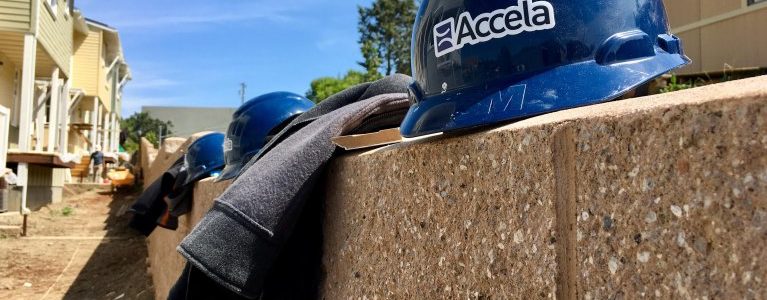No matter how it plays out—and it is still playing out—the 2020 election has been unlike any other in American history.
Taking place against the backdrop of the greatest public health crisis of our time, it’s been one for the record books. Total turnout is set to reach or surpass 160 million, potentially blowing away all records set since the year 1900. Huge early voting turnout and razor-thin margins in battleground states are testing our electoral systems, and our faith in them. It’s also a referendum on an incumbent who has acted in unprecedented and often appalling ways, stoking the flames of cultural conflict extending far beyond mere policy disagreements into the realm of fundamental values.
This election year has also been a time of flux for philanthropy. Challenged to support grantees and the general public during a pandemic, many funders who were already engaged in democracy work doubled down in their efforts to secure the election. Other donors and grantmakers got involved for the first time. Attitudes of studied nonpartisanship gave way in some cases to dogged pursuit of values-based political ends, albeit within the bounds of their charitable status.
A clearer picture of philanthropy’s evolving role—and its impact on the 2020 election—will emerge over the coming weeks and months. But what is certain is that funders are motivated around democracy work as perhaps never before. Here are some of the most important roles philanthropy has played in an election like no other.
Ensuring safe and secure voting
Philanthropy can’t play partisan politics, but there is quite a bit it can do to ease voters’ paths to the polls—or the mailbox, as it were. This year, that work has centered on efforts to counteract the effects of COVID-19 on turnout, either by securing in-person election infrastructure or by boosting vote by mail. The vast number of Americans who submitted mail ballots speaks to the success of that latter effort. With support from established civic participation funders like Ford and the Democracy Fund, advocacy groups like the National Vote at Home Coalition, Common Cause and the League of Women Voters have been pushing states to implement and expand mail voting since the COVID crisis began.
Philanthropic funders have traditionally been less involved in backing actual nuts-and-bolts elections infrastructure, preferring to leave all that to public dollars. But 2020 is also unique in that massive 501(c)(3) donations, most notably from Mark Zuckerberg and Priscilla Chan, have been deployed to directly supplement the $400 million that the CARES Act allocated to help elections officials face the virus.
An oft-cited estimate from the Brennan Center for Justice held that it would take 10 times that sum for states to fully prepare. While high-dollar donations from folks like Chan and Zuckerberg didn’t entirely offset the need, they did make an impact. They also sparked controversy, as Zuckerberg is often criticized as having a harmful influence on our elections via his company Facebook, but also due to perceived partisan bias.
Getting out the vote
Always a popular strategy among democracy funders, encouraging people to exercise the franchise took on particular urgency amid COVID-19 and a political atmosphere of extraordinary tension. Funders were also eager to counteract instances of voter suppression by spurring participation in particular communities. A flurry of support from donors big and small went to organizations whose civic engagement work intersects with organizing and issue advocacy.
Outside COVID and its economic fallout, racial justice has been the most consequential issue of 2020. As grassroots justice organizers work with renewed purpose (and more donor dollars) in the wake of this summer’s protests, they’ve also benefited from increased philanthropic support. The Democracy Frontlines Fund is one place where we’ve seen established democracy funders like Libra, MacArthur and Hewlett partner with movement newcomers like Sobrato Philanthropies and the Schmidt Family Foundation to back racial justice organizing, with an emphasis on building civic power.
As with securing the vote, getting out the vote is also a big priority among the many new pooled funds and collaboratives that have sprung up lately, especially in the wake of 2016. The New Venture Fund’s Voter Engagement Fund is one example, as are vehicles like NEO’s State Infrastructure Fund (which predates 2016) and Resilient Democracy’s 501(c)(3) pooled fund.
Of course, these tactics aren’t without their critics. Conservative voices in philanthropy have characterized progressive-leaning GOTV efforts as political operations in everything but legal status. At the same time, right-leaning groups in the democracy space are no different: the Koch-funded Libre Initiative is one example, working to get out the vote among Latinos.
Fighting voter suppression
It’s often hard to tell who funds state-level efforts to suppress the vote, since that money is usually political, not philanthropic, and flows through 501(c)(4)s. But plenty of philanthropic money does go toward combating voter suppression. Again, pooled funds and collaboratives like the State Infrastructure Fund have played a role, channeling money to legal advocates working jurisdiction by jurisdiction to counter disenfranchisement.
Those advocacy organizations include some big national names like the ACLU and the NAACP Legal Defense and Educational Fund, as well as groups with a specific focus on election protection like the Campaign Legal Center. Major liberal and progressive grantmakers like Ford, the Sandler Foundation, the Democracy Fund, OSF and the Rockefeller Brothers Fund lead those organizations’ funder rosters. But in some cases, as with the Campaign Legal Center, those supporters include names outside the progressive camp, like Arnold Ventures.
Stemming the tide of misinformation
Misleading narratives and flat-out lies were already a problem for democracy advocates going into 2020, and this year’s uncertainties have only fanned those flames. Whether it’s coming from foreign provocateurs, domestic media, or even the president himself, misinformation abounded before, during and after Election Day.
For philanthropy, perhaps the best way to fight noxious narratives and bad advice is to fund those telling the truth. Philanthropy’s efforts to bolster local news and investigative journalism, led by funders like the Knight Foundation and the Lenfest Institute, are one part of that story. Knight is also backing ongoing research to pull back the curtain on how technology is transforming society and civic institutions. Grantees there include the Center for an Informed Public at the University of Washington and Stanford’s Cyber Policy Center, both of which aim to curtail the spread of misinformation.
Outside the journalism and policy contexts, combating misinformation often dovetails with GOTV as civic participation groups make it their mission to deliver accurate information about voting to the populations they serve. In fact, it’s common for local nonprofits in this space to serve as jacks of all trades, trying where they can to make progress on all the fronts mentioned in this piece.
Organizing donors
One area where many grassroots groups struggle is winning support from well-heeled donors who’ve tended in the past to overlook movement and democracy work. That’s less the case this year, though, as intersecting crises bring more wealthy people into the mix. Donor organizing is one area where philanthropic funders can make a major (if indirect) impact on policy norms and democratic culture. Donors on the right have recognized that for decades, and left-leaning donor networks like the Democracy Alliance have also been in the game for a while.
But donor organizing is enjoying a boost these days from newer organizations like Way to Win, a civic engagement 501(c)(4) founded after the 2016 election. The organization’s c3 arm, Way to Rise, was among a number of progressive outfits working throughout the summer to channel money from big donors and foundations toward voter engagement in communities of color. Another example is One for Democracy, a collaborative of wealthy donors who pledged to move at least 1% of their wealth to democracy causes this year. Galaxy Gives, the philanthropic vehicle of Mike and Sukey Novogratz, has led the charge on that initiative.
Gearing up for the rest of 2020
Before November 3, many democracy funders worried about chaos at the polls or threats to the safety of grantees and even foundations themselves. While Election Day itself fortunately managed to avoid major instances of disruption or violence, the razor-thin results all but guarantee some protest and possible unrest.
Already, as of the evening of November 4, there have been tense demonstrations outside elections facilities in swing states like Pennsylvania, Michigan and Arizona. And organizers are holding rallies across the country, demanding that every vote be counted. Meanwhile, legal challenges, cases of voter suppression and other finagling will continue.
Protecting the right of Americans to peacefully protest has been a focus for vehicles like the Proteus Fund’s Piper Fund, which has opposed state-level efforts to restrict the freedom of assembly since 2017. This year, those issues again came to the fore as racial justice protesters, mostly peaceful, came up against heavy-handed policing in many cities. In response, small donors rallied to peaceful protesters’ aid by fronting the money to bail them out of jail. Meanwhile, philanthropy has focused on sustaining a national network of bail funds. If election-related protests escalate, bail-outs may be a route some donors turn to again.
Should some of the more lurid post-Election Day scenarios play out, as well they might, civil society must be on hand to speak out for democratic norms and principles. Although philanthropy has often remained quiet on those issues, one encouraging sign was when philanthropic leaders of differing ideologies put forward a call for a free, fair and safe election in late October.
In a guest piece published earlier this fall, Dimple Abichandani of the General Service Foundation and Carmen Rojas of the Marguerite Casey Foundation called on philanthropy to be bold in its rejection of authoritarianism. “We are living in unprecedented times,” they wrote. “Philanthropy is often more comfortable with strategic plans and slow-paced responses. This moment calls on us to be clear and courageous.”
Two other philanthropic leaders, Scott Moyer of the Langeloth Foundation and William Watterson of Galaxy Gives, made a similar point in another recent contribution to Inside Philanthropy. “Supporting non-partisan civic engagement now and after the election is not secondary to or adjacent to existing program areas. It is a prerequisite without which our other efforts would amount to little more than stop-gaps and quick fixes,” they wrote.
The imperiled state of American democracy may finally end a long period of philanthropic underinvestment, born of a timidity around all things even vaguely “political.” More funders are paying attention, and one gets the sense that more of them will remain engaged even when this election season comes to a close.
In the meantime, it’s worth remembering that for all the forces arrayed against American democracy, there are plenty of people fighting for that ideal. “We’re going to know a lot more in the next few days,”wrote Democracy Fund President Joe Goldman on November 4. “There are thousands of civic leaders and democracy champions—including highly qualified election officials—who are ensuring this process proceeds according to our highest democratic ideals.”

 San Francisco Chronicle: How California activists helped Stacey Abrams turn...
San Francisco Chronicle: How California activists helped Stacey Abrams turn...
 San Francisco Chronicle: How California activists helped Stacey Abrams turn...
San Francisco Chronicle: How California activists helped Stacey Abrams turn...